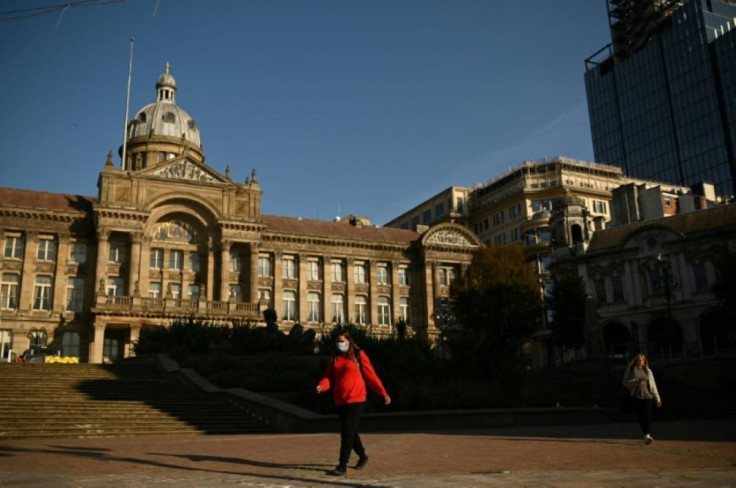Former council advisor questions legacy of Commonwealth Games amid Birmingham's financial crisis
Birmingham City Council, Europe's largest local authority, declared effective bankruptcy due to annual budget shortfalls, shifting focus to protect vital services while halting non-essential spending.

A former advisor to Birmingham City Council, Max Caller, has raised concerns about the decision to host the Commonwealth Games in the city, given the legacy of financial difficulties it has left behind.
Birmingham City Council recently announced that it would be halting all but essential spending due to an outstanding bill of £760 million to settle equal pay claims. Urgent discussions are underway following the council's announcement that it is effectively bankrupt, with an £87 million budget shortfall for the current year and potential additional costs of up to £100 million to fix an IT system.
Max Caller, a former non-executive director of the council who was appointed in 2019 to help address the city's financial problems, expressed his belief that hosting the Commonwealth Games diverted the council's focus from resolving its pre-existing issues.
He argued that councils facing financial troubles should prioritise improving their financial health rather than taking on new projects. Mr Caller noted that while the Commonwealth Games was undoubtedly an impressive event, they detracted from addressing long-standing problems that had existed since before 2015, suggesting that the council should have concentrated on "doing the basics" effectively.
As news of the dire financial situation emerged, taxpayers expressed concerns about the potential impact on essential services such as road maintenance, libraries, and cultural projects. Local community organisations that rely on council funding also voiced their apprehensions.
Pat Hollingshead, who runs a charity in Druids Heath, expressed her concerns about the potential consequences for her community centre, which provides services like a food bank and lunch club for the elderly. She worried that any cuts could isolate older residents further.
Kynton Swingle, from the Fox Hollies Community Association in Acocks Green, expressed similar concerns, emphasising the increasing demand for their services, particularly during the pandemic.
The community association offers support to lower-income households with services such as mother and toddler groups, youth clubs, and food distribution. The potential impact of budget cuts on these vital services worried both staff and beneficiaries like Shirley East, who rely on them as essential community resources.
Eli Holland, the manager of Birmingham Central Foodbank, while not directly funded by the council, was concerned that cuts to support services could have a significant negative impact on the people he assists. He emphasised the importance of continued funding for core services to support those experiencing poverty in the city.
Council leader John Cotton assured the public that essential services like social care, waste collection, and support for vulnerable individuals would continue despite the financial challenges.
However, the viability of large-scale events like the German Christmas Market and the funding of the 2026 European Athletics Championships at Alexander Stadium remained uncertain. The Conservative mayor for the West Midlands, Andy Street, suggested that the combined authority might need to step in and fund certain projects if the city council had to withdraw support.
Meanwhile, discussions were ongoing to protect the thousands of jobs at Birmingham City Council. Sharon Graham, general secretary of the Unite union, expressed concern that council workers should not bear the brunt of the financial mismanagement, emphasising the importance of the vital services they provide to communities.
Comparing Birmingham's situation to that of Thurrock Council in Essex, which declared bankruptcy in December, John Kent, the leader of Thurrock's Labour opposition, warned that noticeable changes in Birmingham were likely to happen swiftly.
He cited examples such as dirtier streets, reduced grass cutting, and the cancellation of subsidised bus routes in Thurrock, which experienced a 10 per cent council tax increase the previous year.
The government revealed that it had been engaging with Birmingham City Council over the pressures it faced, including equal pay liabilities, expressing serious concerns about its governance arrangements.
The council had launched a voluntary severance scheme for its employees to address the rising equal pay claim, which was increasing by millions each month. Birmingham City Council issued a Section 114 notice, indicating its inability to balance its budget or commit to new spending.
During Prime Minister's Questions (PMQs), PM Rishi Sunak criticised the Labour-run council's financial state, echoing concerns about fiscal responsibility. Labour leader Sir Keir Starmer acknowledged the challenges faced by councils across the country due to chronic underfunding and expressed the need to address this issue if Labour were to come into power.
Jonathan Carr-West, chief executive of the Local Government Information Unit, commented on Birmingham City Council's declaration of bankruptcy as a "sobering moment" and called attention to the funding system that has driven many councils across the country toward financial ruin.
© Copyright IBTimes 2025. All rights reserved.






















